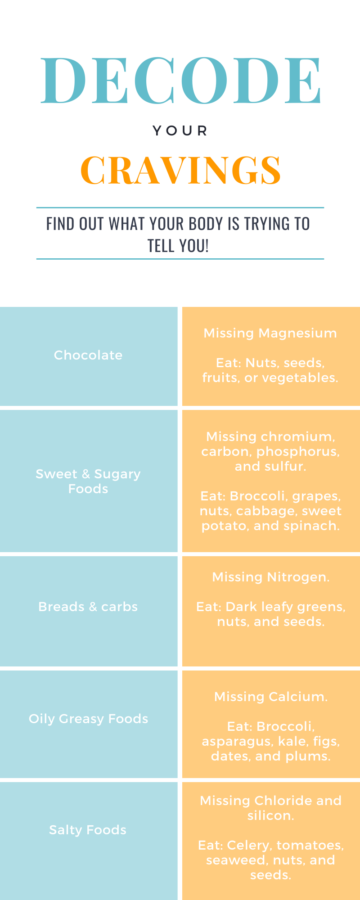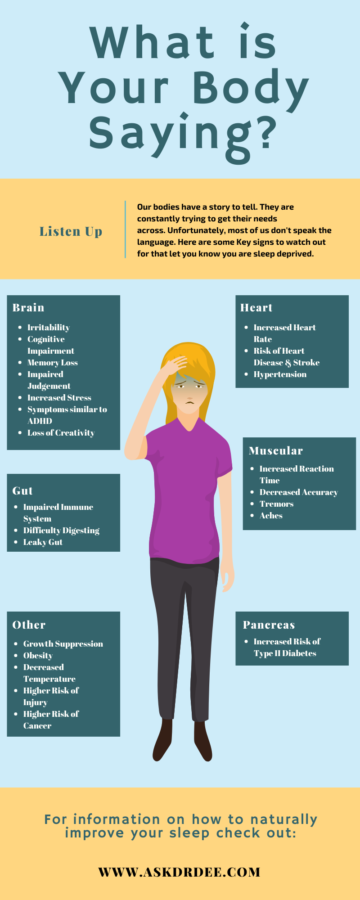Whom among us doesn’t love a good night’s sleep? While most of us are fully aware of just what a nightmare we can become when we don’t get enough sleep, few people understand how important it is. On average we spend a third of our lives sleeping. Yet, for most of us we are not getting either enough sleep or worse a good enough quality of sleep. Sleep is hands down one of the most critical things our bodies depend on. It is almost as important as water and food to the body. Without the proper amount or quality of sleep we run the risk of compromising more than just our happiness but our health as well.

The Power of Sleep
It is no secret that we all NEED sleep, it is without a doubt one of the most important aspects to a healthy way of life. When we deprive our bodies of the sleep they need to function at an optimal level we end up with a number of issues. Prolonged sleep deprivation can cause your body to work overtime which lowers the amount of energy and resources it has to fight off illness. Not only does it weaken your immune system by overworking your body, it also increases your risk of depression. Sleep deprivation can increase stress and anxiety which can often lead to extreme depression. Stress is another big killer of your body’s immune system. Excess Cortisol levels force your body into a constant state of alert which only furthers the cycle of sleep deprivation.

Lost In Translation
When our bodies experience high levels of stress or a lack of sleep the brain will actively look for alternative sources of energy. While that may sound good on paper it often translates to high calorie foods. What is high in calories you ask? More often than not this means we are actively reaching for high fat or high sugar foods, which means overly processed foods. As an unfortunate side effect we see high weight gain and a constant hunger. Because most of the foods we crave due to stress or sleep deprivation are often deprived of nutrient value our bodies are also constantly putting in an order for more building supplies. This means while your tongue may be saying chocolate your brain is really saying Magnesium. Don’t worry here is a helpful way to decode those pesky cravings.

Danger Zone
Other health related issues that can spring up due to a lack of sleep are low libido. Because sleep is so pivotal to our survival our bodies instinctively prioritize it over reproduction. Disruptions in sleep can also cause an imbalance in hormone secretion resulting in infertility, again the body will prioritize its survival over reproducing. People who sleep less than seven hours a night are 30% more likely to be obese. This puts them at a higher risk for diabetes, especially when coupled with the fact that sleep deprivation can increase insulin resistance. Another health related issue that stems from a lack of sleep is an increased risk of heart disease due to an increase of inflammation throughout the body as a result of a lack of sleep. Did you know that there are over 1,500 deaths each year associated with people falling asleep behind the wheel?

What to Look Out For
Clearly sleep is an important part of a healthy lifestyle and a stronger immune system. But how do you know if you are experiencing sleep deprivation? There are some signs and symptoms you need to watch out for. Mentally you may be more irritable, suffer memory loss, difficulty focusing, increased stress, and impaired judgement. As for your digestive system you may experience leaky gut symptoms and additional digestive issues. Increased heart rate and hypertension are also common in sleep deprivation. As for your muscles you may experience a decrease in reaction time, tremors, and even aches and pains. Other indicators include but are not limited to weight gain, decreased body temperature, hormonal imbalance, and stunted growth.

What Do You Need?
So how much sleep do you need? Here’s the thing, everyone is different and therefore what may be right for one wont be right for all. On average your age plays the largest contributing factor in regards to how much sleep your body needs. Oddly enough the younger you are the more sleep your body needs. Which in hindsight makes sense given that our bodies are still actively growing when we are younger and therefore our bodies need more time to catch up. Newborns need about 16-18 hours of sleep a night. Toddlers need about 11-12 hours of sleep a day. Pre-teens need about 10 hours of sleep a day. Teens on the other hand can do 9-10 hours a day and adults on average need at least 7-8 hours of sleep a day.

My Sleep Cave
If you are like most of the world and struggle to get your eight hours there are some helpful tips you can use to improve your sleep habits. One of the best things you can do is to create a sleep cave. Now, this does not mean it has to be a black hole. You just need to create a space that is peaceful so limit the light and sound you are exposed to. An ideal temperature for sleeping is between 65-70 degrees F. It is also a really good idea to remove the TV from your bed rooms. Beds are for sleeping (and of course the occasional bedtime workout) not for watching shows or working. Fun fact, your mind will remain as active as it was when you first fell asleep all night. If you have ever woken up only to feel drained and exhausted it is because your brain was too active when you fell asleep!

Keep It Routine
Some other great ways to improve your sleep is by creating a schedule. I cannot stress how beneficial it can be for your overall health to establish a schedule that works best for you. Our bodies are designed to work on autopilot when they need to. That means if you can establish a schedule where you wake up every morning at the same time (yes, this means weekends too) and go to sleep at the same time. Your body will already start shifting gears into sleeping or waking based on the time of day. This is due to your body’s circadian rhythm, which is basically your body’s built in alarm clock. When you create a regular schedule your body will start to perform tasks without you having to force yourself into it.

Create A Habit
Have you ever noticed that the first two weeks of a new routine are often the hardest? That’s because it takes our brains 21 days to form a habit. Once this habit is in place we are more likely to continue it with ease. If you are looking to establish healthy habits that can improve your health and sleep you may want to add in a meditation, exercise, and nutritional one as well. Meditation is a great way to help your brain slow down before bed to ensure a restful night’s sleep. Exercise comes with a number of health benefits such as improved circulation which can result in a deeper night’s sleep. Nutrition is beneficial in a number of ways. What we eat directly determines what our bodies can make. If you are having trouble sleeping you will want to increase your Melatonin levels and a great way to do just that is with foods high in tryptophan.

Whose Side Are You On?
Did you know that how you sleep can also affect your sleep quality and quantity? Turns out that if you struggle to fall asleep you may want to start sleeping on your right side. Studies have shown that people fall asleep faster when they lay on their right side, unless they suffer from acid reflux. If you are someone who gets chronic heartburn you may want to take a look at your nutrition and sleep on your left side. By sleeping on your left side you actually cut off the flow of acid from leaving your stomach and going up your esophagus. For a deeper night’s sleep you may want to try sleeping on your back. You should avoid sleeping on your front as it can cause excess pressure on your organs. No matter which options you choose to help you snooze give your body the rest it needs.

Dreamy Strawberry Pie
Gluten-Free, Vegan, Serves 8
- 1 Quart Fresh Strawberries
- ¾ Cup Orange Juice
- 1 (9-inch) Gluten-Free Vegan Pie Crust Baked
- 3 Tbsp Cornstarch
- 1 Cup Coconut Sugar
- ½ Cup Full Fat Coconut Milk
- ½ tsp Pure Vanilla
Directions:
Arrange half of the berries into the pie shell. Mash the other half of the berries with the sugar inside of a saucepan. Place over medium heat bringing to a boil while stirring frequently. In a small bowl whisk together cornstarch and juice. Gradually stir in slurry into boiling strawberry mixture. Reduce heat and let thicken up for about 10 minutes. Pour mixture over berries in pie shell and let chill for 2-3 hours in the refrigerator. Before serving in a clean glass bowl whip coconut milk and vanilla until peaks form (if you are having trouble you can always add a little cream of tartar powder for stability). Serve each slice with a dollop of fresh whipped coconut cream.

Need a Helping Hand?
A happy and healthy life is closer than you may think. Our health is something that we all have to deal with daily, and when we don’t feel our best, it shows. If you are tired of just making it through your day then you NEED to start investing in your health today! You are not alone on this journey. If you ever need any help I am always here to do just that. Even if it is something as small as just acting as a sounding board. Do you have any questions or concerns I can help you with? Feel free to contact me directly at [email protected] or you can even book a one-on-one call with me. Be sure to subscribe to gain access to tons of free goodies and check back daily for more great recipes and information!

